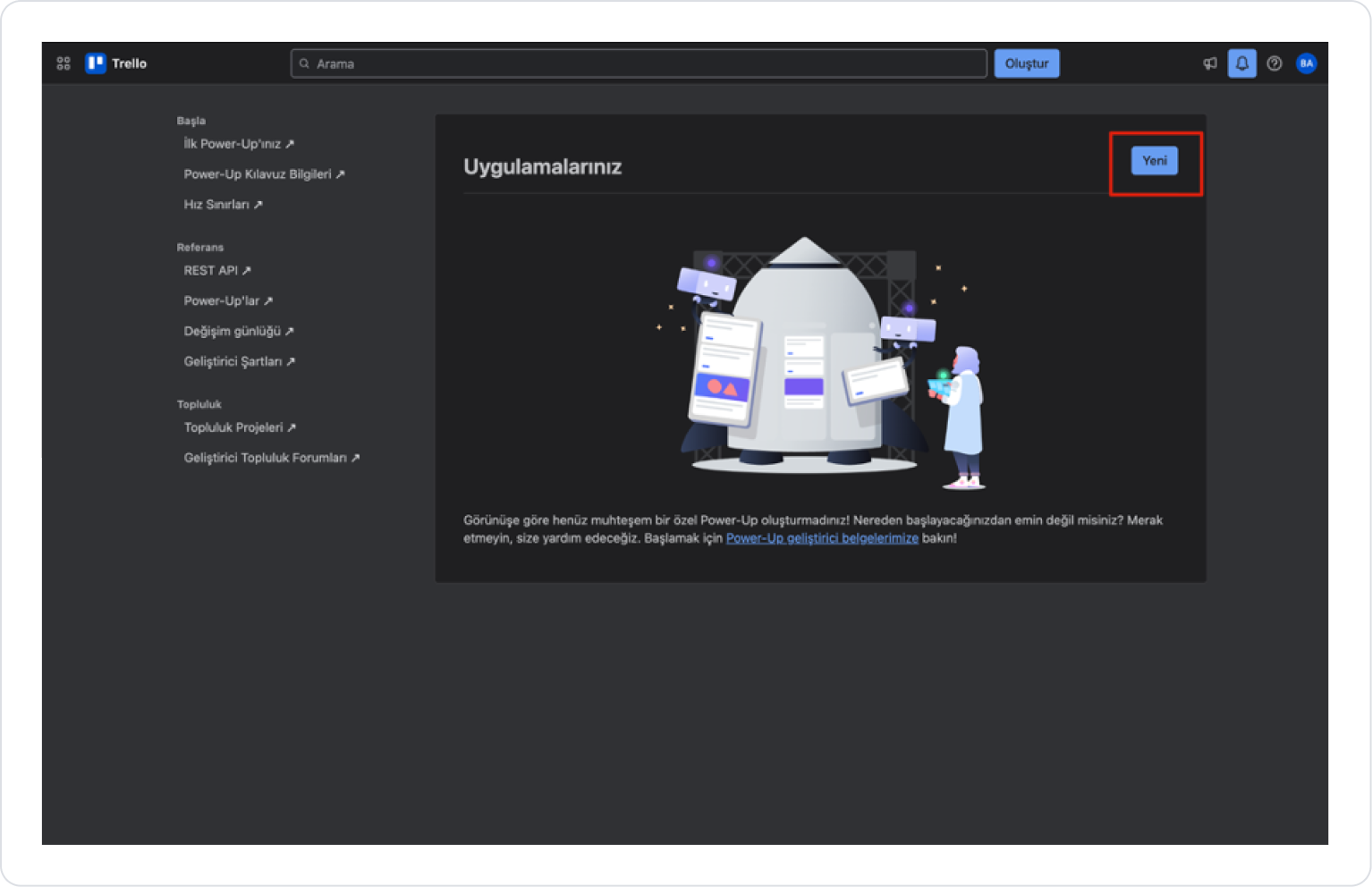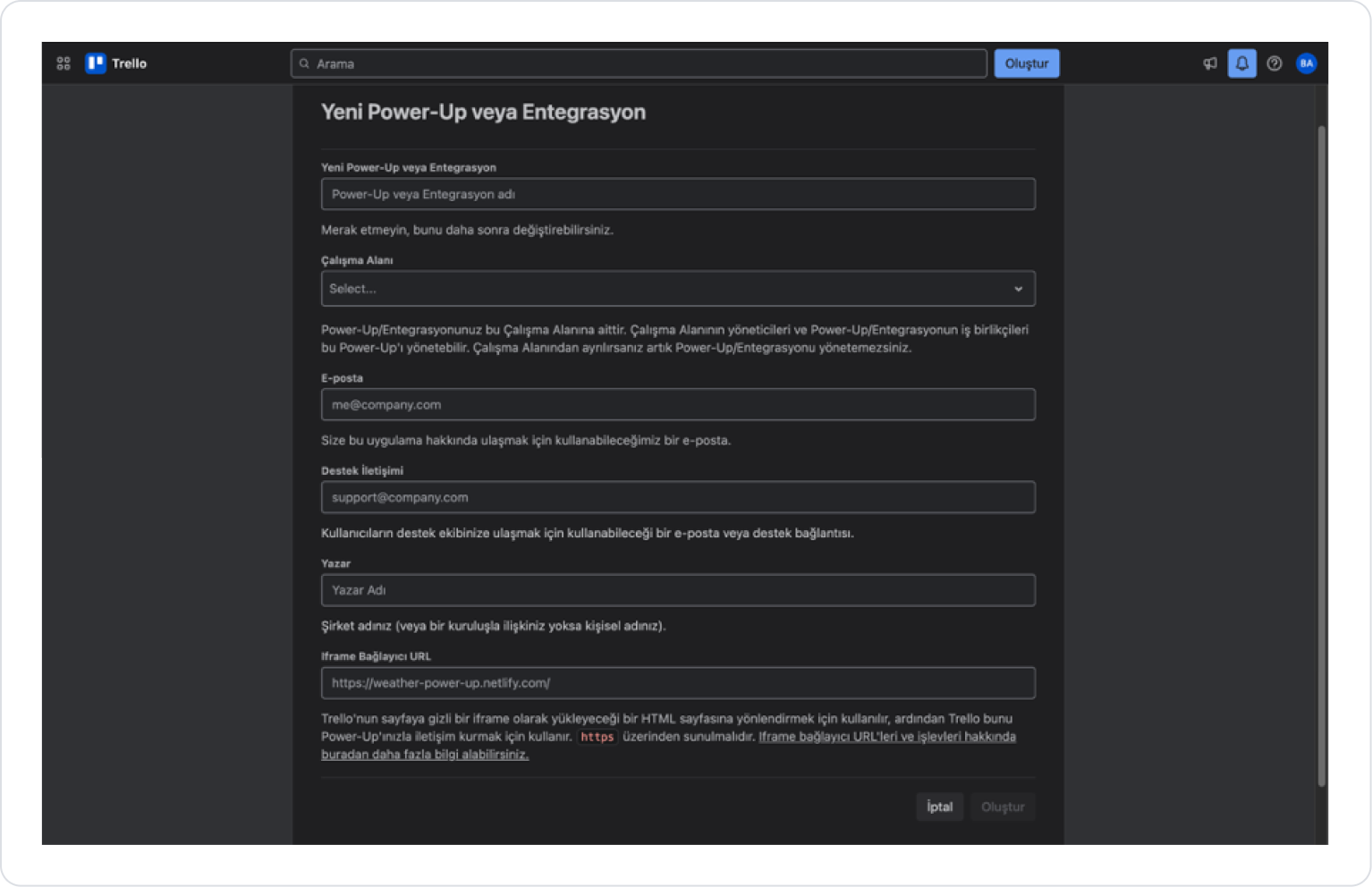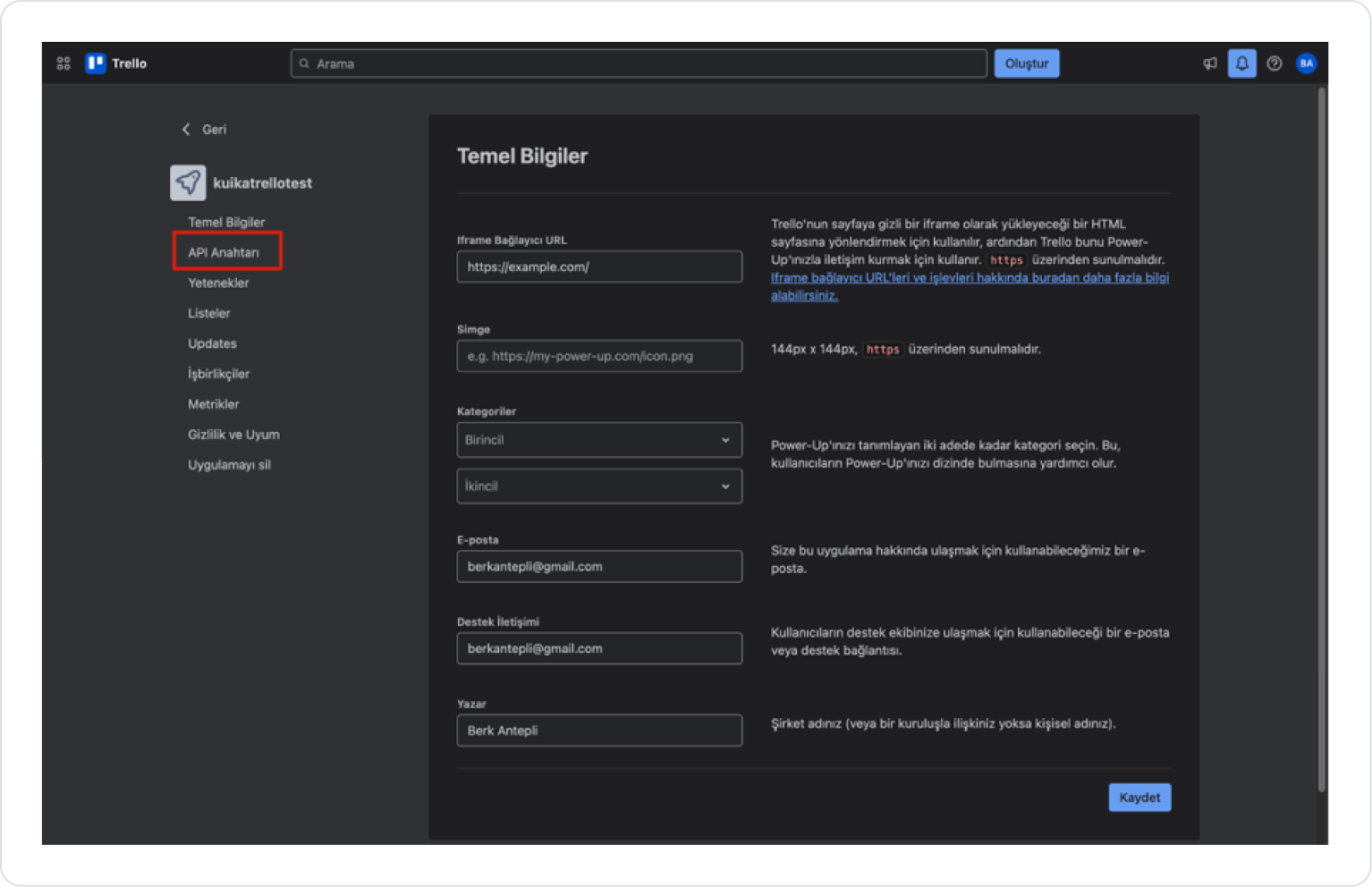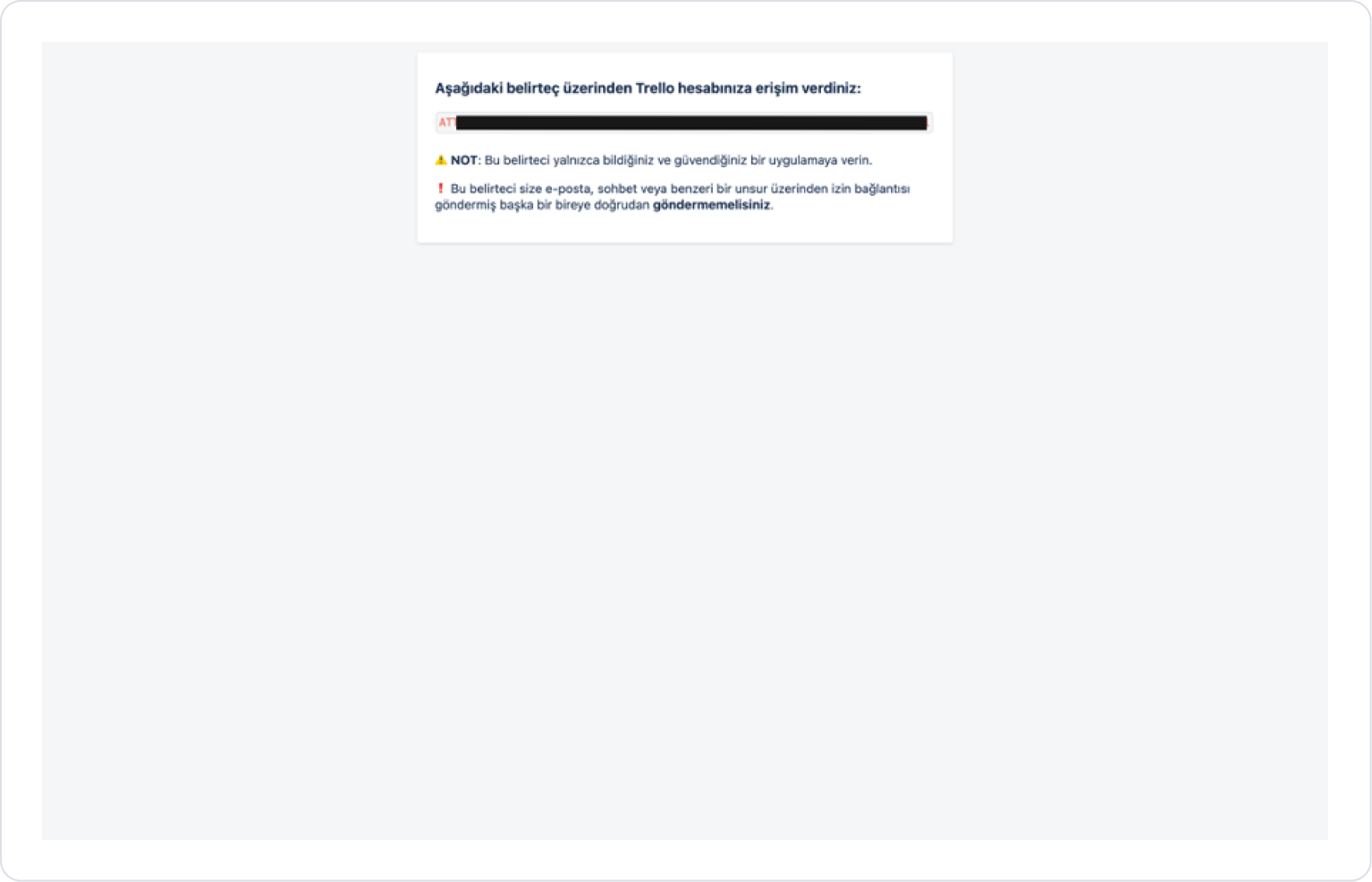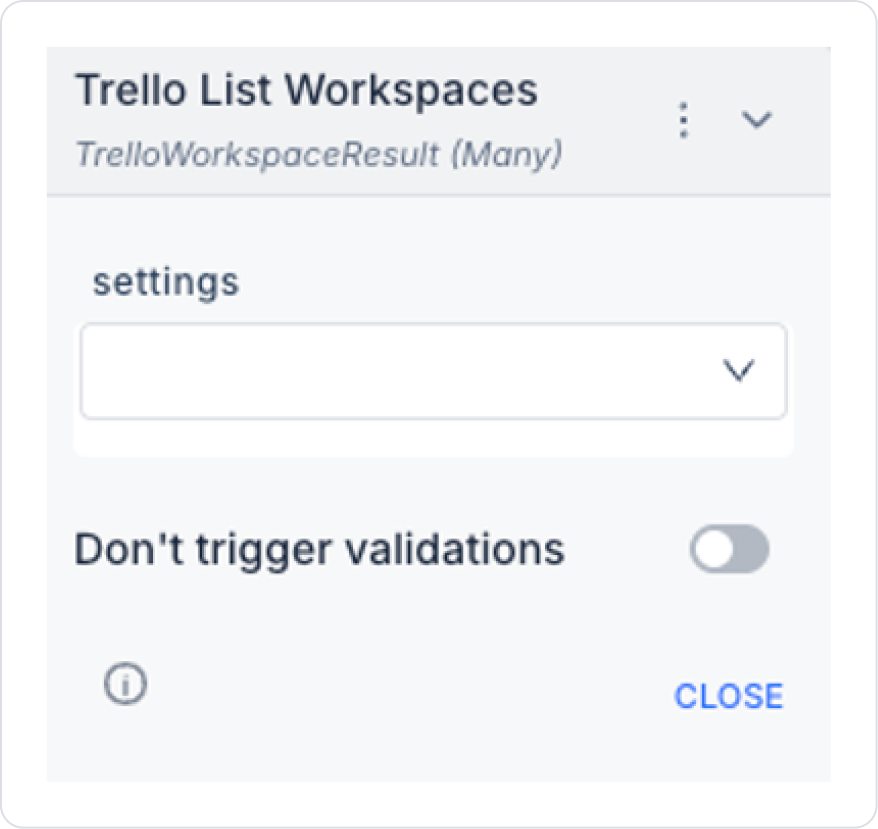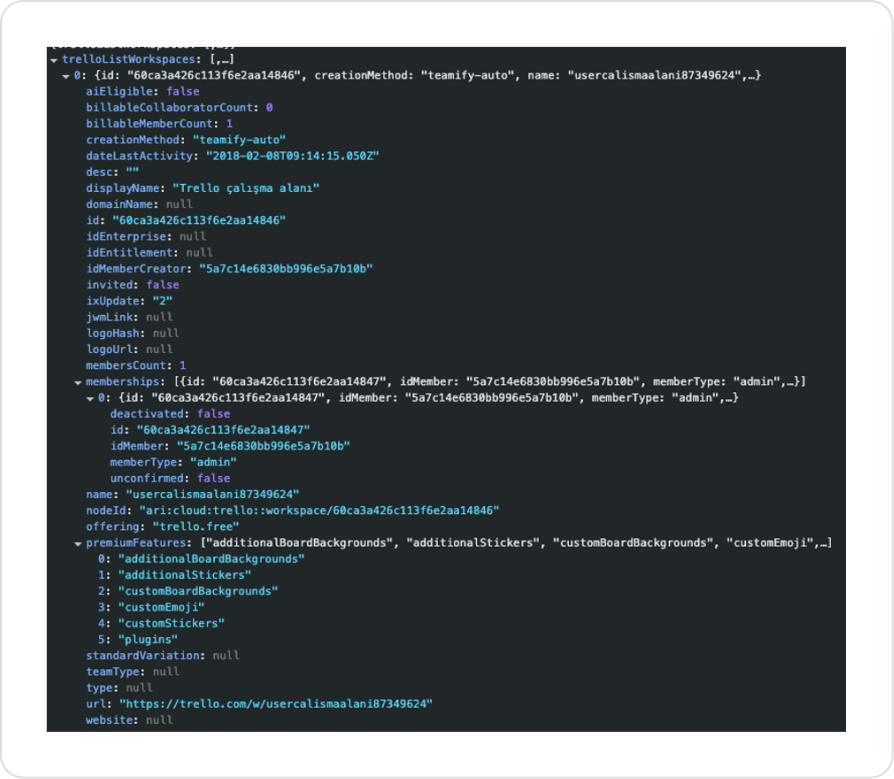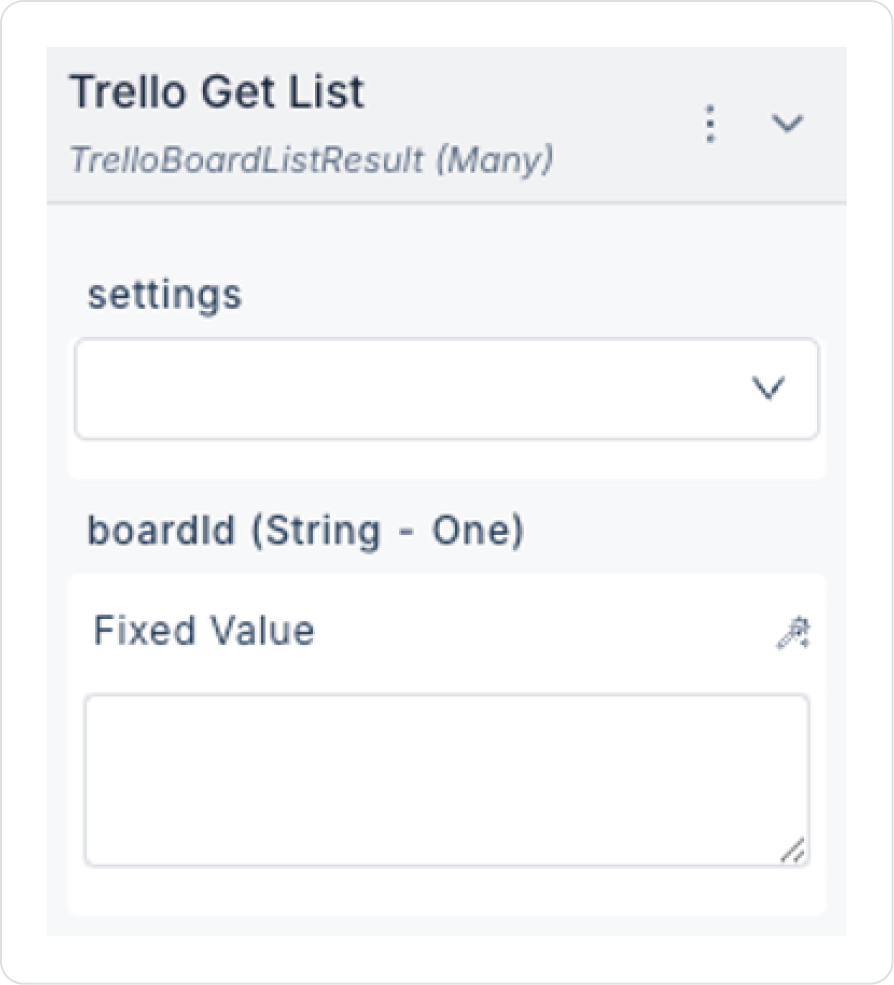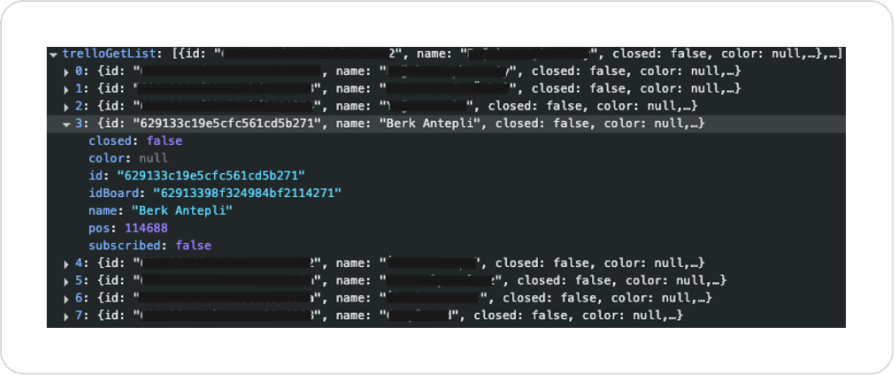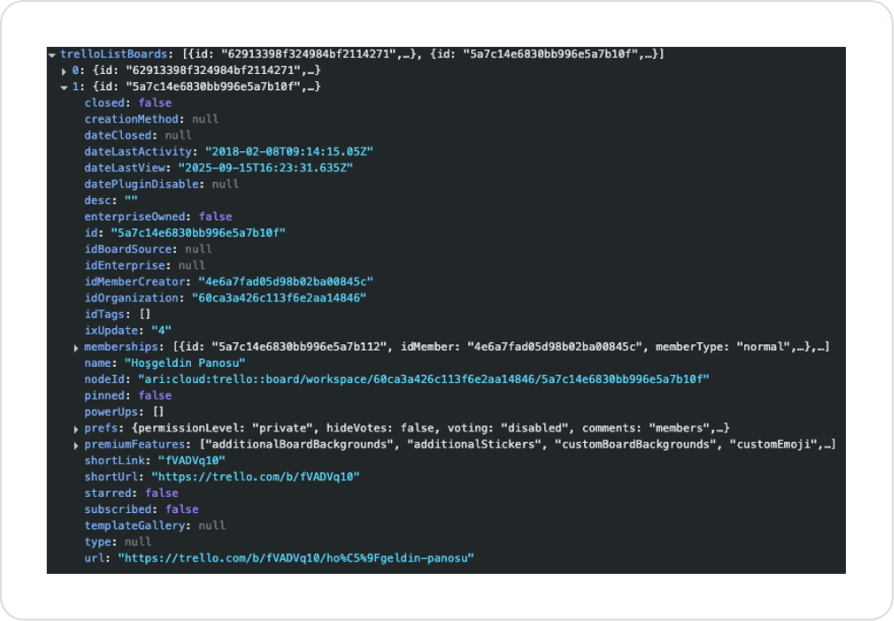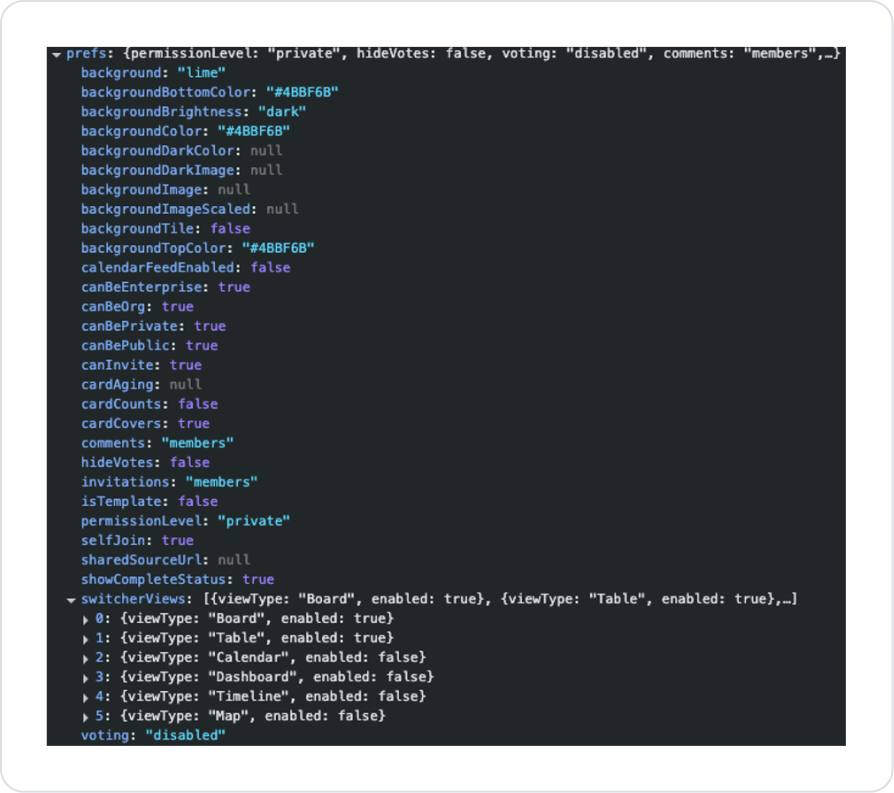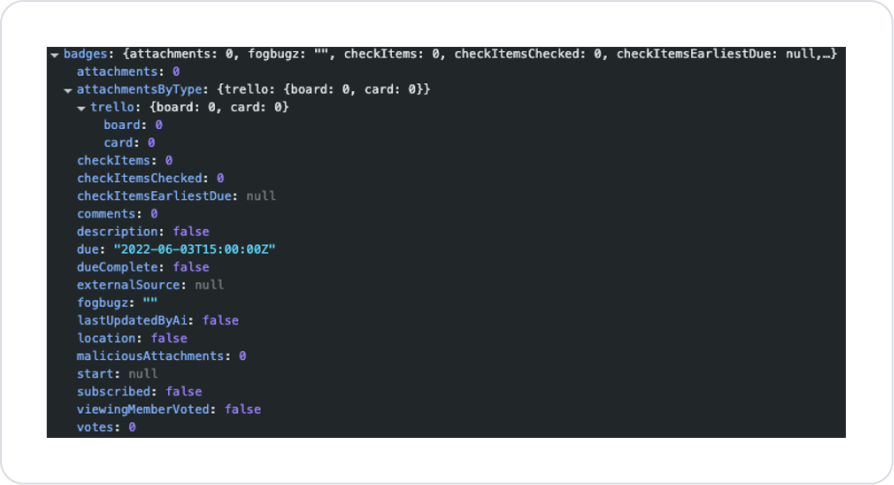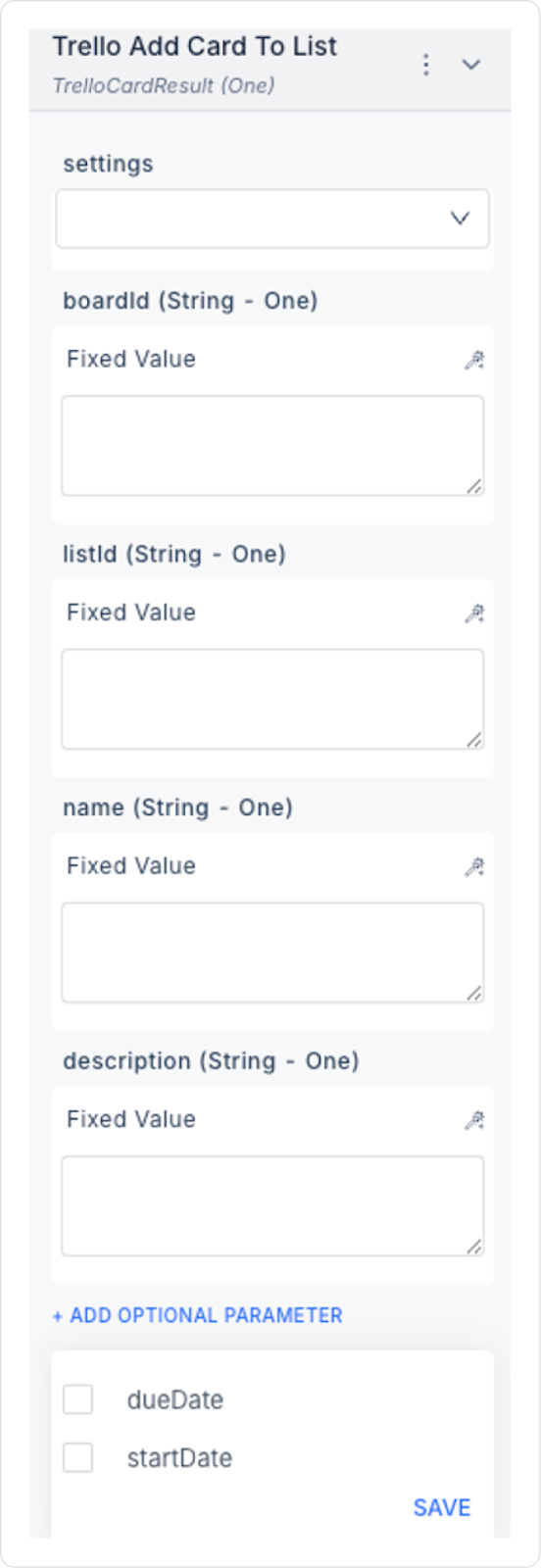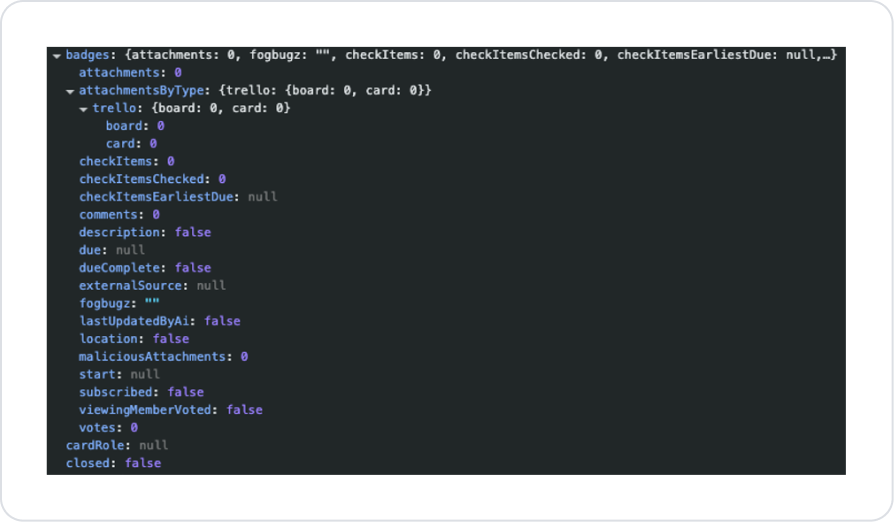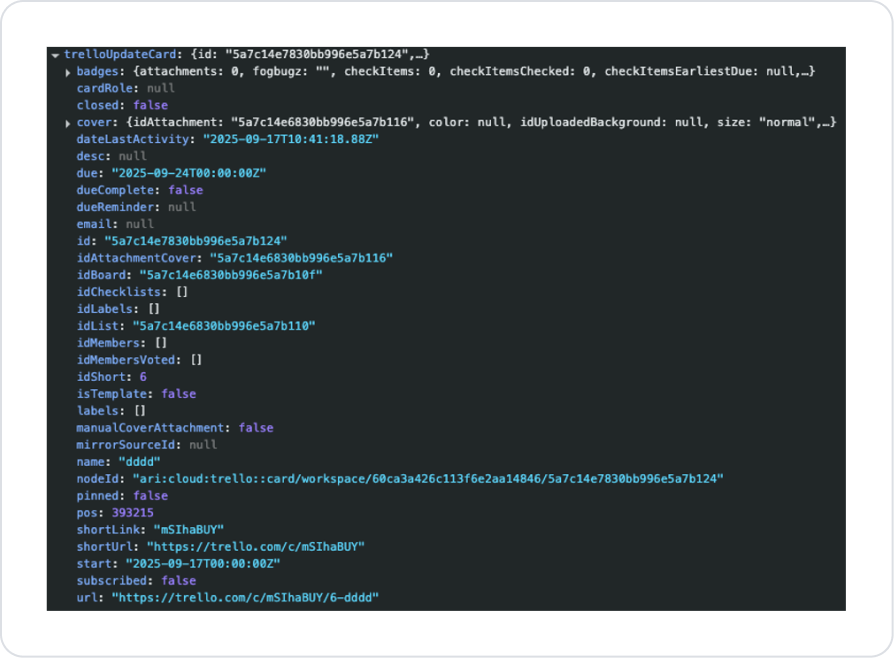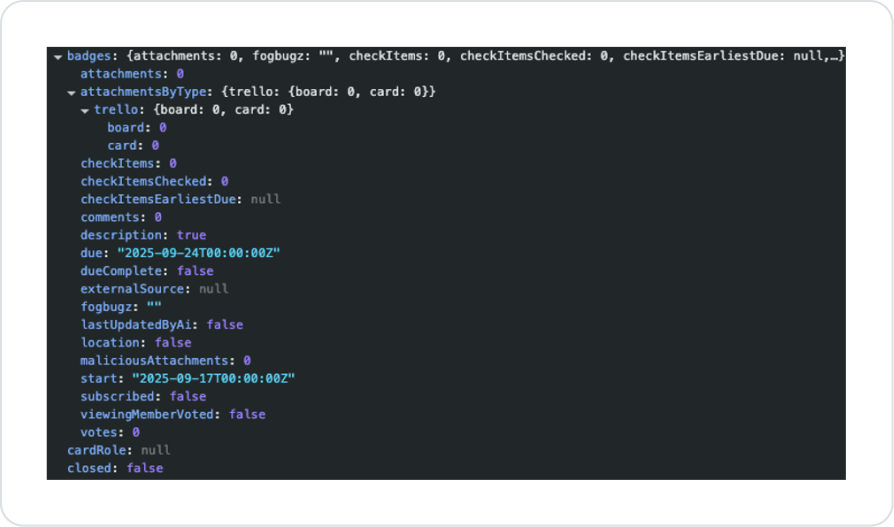Trello MCP is a module designed to facilitate interaction with Trello boards and cards in your Kuika application. It integrates with the Trello API and automatically manages rate limiting, type security, and error handling.
Configuring Settings via the Configuration Manager Log in to the Kuika platform. Select the project you will be working on from the Apps screen. Click the ADD NEW button in the Configuration Manager → App Settings → MCP → Trello area. Required Fields
Creating a Trello API Key and Token Go to the relevant site and log in. On the page that opens, click the Power-Up Admin Portal link. On the screen that appears, check the checkbox and press the Continue button. Since only the API Key will be retrieved, you can enter “https://example.com/” in the “Iframe connector URL” field. After filling in the required fields, click the Create button. Go to the API Key section in the left menu → Create a new API key → Follow the Create API key steps. The API Key is created here. Click the Token button on the right. Scroll down to the bottom of the screen that opens and click the Allow button. The generated Token will appear on the screen; copy it. This information is added to the Trello MCP Setting field in Configuration Manager.
The setting can only be used in the project it was created for. It must be redefined in other projects. Action Types 1. Trello List Workspaces
Retrieves the workspace list.
Input
settings (Config – required): Trello setting defined in Configuration Manager.Output
id (String) → Unique workspace ID. creation_method (String) → How was the workspace created? (e.g., “standard”, “invite”). name (String) → Workspace short name (slug). display_name (String) → Name visible to the user. desc (String) → Description. domain_name (String) → Custom domain information (if available). id_enterprise (String) → Enterprise ID (if available). id_entitlement (String) → Entitlement ID. id_member_creator (String) → Member ID of the creator. invited (Integer) → Number of invited users. members_count (Integer) → Number of members. billable_member_count (Integer) → Number of billable members. url (String) → Workspace URL. website (String) → Related website. logo_url (String) → Workspace logo. ai_eligible (Boolean) → Is it eligible for AI features? premium_features (Array) → List of premium features. team_type (String) → Workspace type (e.g., “education”, “standard”). date_last_activity (DateTime) → Last activity time. memberships (Array) → Membership information. id, id_member, member_type, unconfirmed, deactivated 2. Trello List Boards in Workspace
Lists the boards within a specific workspace.
Input
settings → Trello setting workspaceId → Workspace ID (found with List Workspaces) Output
id (String) → Board ID. name (String) → Board name. desc (String) → Description. closed (Boolean) → Is the board closed? date_closed (DateTime) → Closure time. id_organization (String) → Associated workspace ID. pinned (Boolean) → Is it pinned? starred (Boolean) → Is it a favorite? url (String) → Board URL. short_url (String) → Short URL. prefs (Object) → Board settings. permission_level, voting, comments, invitations, self_join, card_covers, is_template, etc. label_names (Object) → Color label names. power_ups (Array) → List of active Power-Ups. date_last_activity (DateTime) → Last activity time. background_color, background_image, background_tile, background_brightness memberships (Array) → Members (id, member_type, unconfirmed, deactivated). 3. Trello Get List
Retrieves the lists within a board.
Input
settings → Trello settings boardId → Board ID Output
id (String) → List ID. name (String) → List name. closed (Boolean) → Is it archived? color (String) → List color. id_board (String) → Associated board ID. pos (Integer) → Position. subscribed (Boolean) → Is the user subscribed? 4. Trello List Boards
Lists all of the user's boards.
Input
settings → Trello settings Output
Returns the same fields as List Boards in Workspace. 5. Trello Get Cards By List
Retrieves cards within a specific list.
Input
settings → Trello setting boardId → Board ID. listId → List ID. Output
id (String) → Card ID. name (String) → Card name. description (String) → Description. closed (Boolean) → Is it archived? date_last_activity (DateTime) → Last activity. due (DateTime) → Due date. start (DateTime) → Start date. id_board (String) → Board ID. id_list (String) → List ID. id_members (Array) → Card members. labels (Array) → Labels. cover (Object) → Card cover information. badges (Object) → Card badges: attachments, check_items, comments, votes, due_complete short_url (String) → Card short link. url (String) → Card URL. subscribed (Boolean) → Is the user subscribed? 6. Trello Add Card To List
Adds a new card to a specific list.
Input
settings → Trello settings boardId → Board ID listId → List ID name → Card name description → Description due_date, start_date Output
All details of the newly created card (id, name, description, dates, members, labels, cover, badges). 7. Trello Add List To Board
Adds a new list to a board.
Input
settings → Trello settings boardId → Board ID listName → List name Output
id (String) → List ID.name (String) → List name.closed (Boolean) → Is it archived.id_board (String) → Associated board ID.pos (Integer) → Position.subscribed (Boolean) → Is the user subscribed.8. Trello Move Card
Moves a card to another list.
Input
settings → Trello settings boardId → Board ID cardId → Card ID listId → New list ID Output
Current information of the moved card (id, name, description, id_list, pos, date information, labels, cover, badges). 9. Trello Update Card
Updates a card's information.
Input
settings → Trello setting boardId → Board ID cardId → Card ID name, description, due_date, start_date Output
Updated card information (id, name, description, date information, members, labels, cover, badges). Usage in Kuika
The Trello MCP Setting defined in Config Manager can be used by selecting it in the settings parameter of all Trello Actions in the project.
Example Scenarios:
Pull the workspace list → List Workspaces View the boards within the workspace → List Boards in Workspace List the lists within the board → Get List Pull the cards within the list → Get Cards By List Add a new card/list → Add Card / Add List Move a card → Move Card Update a card → Update Card 



